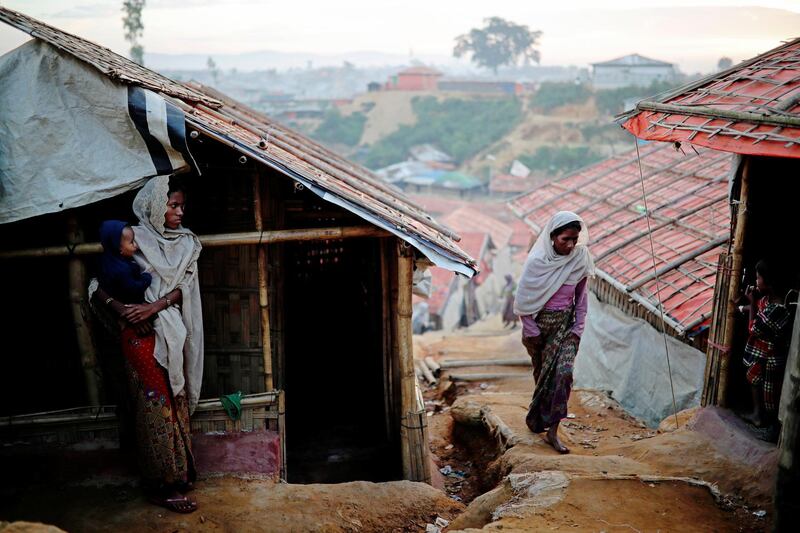In the humanitarian world, each situation is a mission, each crisis is a priority and every humanitarian need on the ground is a call to action. All situations deserve attention, compassion, commitment and, above all, perseverance in search of a solution that preserves people's dignity, ensures their rights and gives them hope for a better future. The plight of the Rohingya is one such crisis. It calls for our attention and commitment.
More than 900,000 Rohingya have been uprooted from their homes into displacement camps. They fled violence in Myanmar in successive waves, over the years – about 745,000 since August 2017 alone, and many within the space of just a few months. All left Myanmar behind, escaping to Bangladesh in search of safety and security. Most ended up in Cox's Bazar, which hosts the largest and most densely populated refugee camp in the world.
This huge and rapid exodus has placed tremendous strains on the already scarce resources of the host community. It has placed humanitarian response capacity under enormous pressure and constrained humanitarian interventions towards meeting basic needs and mitigating the devastating impacts of monsoon rains and the cyclone season.
It is, therefore, extremely important that the international community sustain and enhance its humanitarian response in all areas of the camp and across its surroundings. It is also vital to boost the efforts of the World Food Programme and the international community to create and strengthen food security, safeguard health, save lives, enhance livelihoods, improve education and empower women for their own benefit as well as that of their children and their households. This all starts with food security. A stable food supply is a must to safeguard people’s dignity and ensure protection of gains achieved in other areas of humanitarian response.
Failure to maintain food security can jeopardise other humanitarian achievements and lead to a rapid deterioration in the situation in the camp and its surroundings. Accessing food with dignity is a basic right. When food security is undermined, people’s overall human security takes a hit. Safeguarding and enhancing the food security achieved by the World Food Programme, with the support of the international community, is key to making gains in other areas of the humanitarian response in the camp and its surrounding area.
Without proper funding, food security and stability in the camp will be in great danger. Initiatives put in place by the programme to improve food security and nutrition, including school feeding, treatment of malnutrition, and livelihood-enhancement programmes for women, could suffer enormously. Sustained international support and funding is necessary to continue to effectively and efficiently attend to the humanitarian needs of the Rohingya as well as those of their hosts.
The majority of Rohingya in Cox's Bazar still rely on food assistance for their survival. It is therefore of paramount importance that self-reliance programmes and integrated skills packages – such as the ones put in place by the World Food Programme – are enhanced. They include myriad capacity-building initiatives, such as vegetable gardening, small-scale production pilot schemes and aquaculture training programmes. This not only contributes to improving the access of refugees to a more diverse range of food, it also provides them and their host community with economic opportunities and boosts their immediate and potential long-term livelihoods, self-reliance and resilience. Most importantly, it provides them with a safe and dignified way to benefit from humanitarian assistance.
Campaigns such as the UAE for Rohingya Women and Children initiative, launched recently to assist the displaced community, raise much-needed funds to support the international community’s humanitarian response to this crisis. They also help to raise people’s awareness of humanitarian situations around the world, some of which have unfortunately slipped out of the limelight – not because they have been successfully solved but because newer situations have emerged and overshadowed them in the public eye. This campaign brought the Rohingya crisis back to centre stage at a critical time.
The Rohingya community deserves a better future. Their plight remains one of the most alarming humanitarian situations in the world. For the vast majority of this community – mothers and fathers, sisters and brothers, the old and the young, families just like yours and mine – the struggle for survival is real. Yet they continue to dream of a solution in the foreseeable future. To make this possible, we must all join hands and continue to work collectively to alleviate their suffering, support the host community and ensure they are not only helped to survive but also start to see hope for a better future for themselves and their children.
Mageed Yahia is director of the World Food Programme in the UAE and representative to the GCC region





